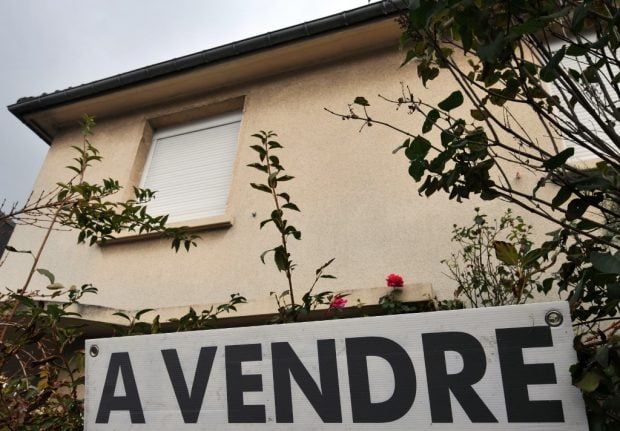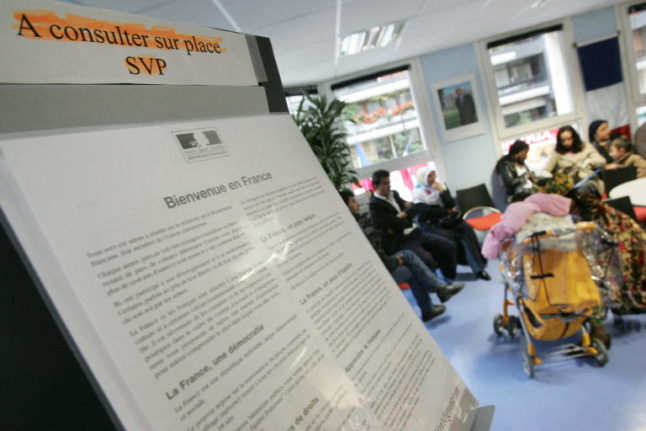A new study of data from the OECD and Eurostat shows a huge increase in British nationals emigrating to the EU since the Brexit vote in 2019.
The data shows that 10,280 British people registered for residency in France between 2016 and 2018.
This follows a trend of big increases in registration in Spain (21,250 people), Germany, (11,310), Ireland (5,660) and the Netherlands (5,510). The data also showed a large increase in applications for citizenship, especially in Germany which saw a 2,000 percent rise in citizenship applications.
“These increases in numbers are of a magnitude that you would expect when a country is hit by a major economic or political crisis,” Daniel Auer, co-author of the study by Oxford University in Berlin and the Berlin Social Science Center, told UK newspaper The Guardian.
However in the case of France, the data may not be quite what it seems.
France is unusual among EU countries in that it does not require EU citizens to register for residency, as the authors of the study acknowledge.
READ ALSO What is the Brexit Withdrawal Agreement and does it cover me?
Many British people who have lived here for many years have never figured in the foreign residency data, even if they are fully registered for health and social care and in other official databases.
After the Brexit referendum the situation for British people already living here was quite unclear, but many people registered for a carte de séjour (residency card) as a precaution, which would account for at least some of the 10,280 new registrations seen between 2016 and 2018.
The same is likely to be true for Spain's figures. Although EU citizens in Spain do need to register for residency the rule has not always been strictly enforced. People working need a foreigner ID number, but many of the pensioners who make up a large part of the British population in Spain had never before registered as foreign residents. As in France, many people rushed to make their life official after the referendum which could again account for at least some of the 21,250 new registrations.
The situation with registration for Brits in France remains complicated and – apart from the ongoing uncertainty for many – it means that France doesn't actually know how many Brits live here.
It is estimated to be between 150,000 and 300,000 but the uncertainty is creating headaches for local officials, who will soon be faced with registering every British resident in France.
After initially being advised to get a European carte de séjour the system has now changed for British people who are either already living in France or who make the move before December 31st 2020 (the end of the transition period).
Every British person in France will need to register for a new carte de séjour.
Those who already have a carte de séjour permanent (10 years) can simply swap their card for the new card, but those who have a short-term card and those with no card will have to make a new application.
READ ALSO Carte de séjour – the online process for post-Brexit residency cards in France

The French government has created a new online portal which all British people must make their applications on. This was originally due to go live in July, but due to a backlog of immigration cases created during the lockdown, the launch has now been postponed until October.
For more on how the process works and what you need to do click HERE.
Since early 2019, the majority of local préfectures have not been accepting residency applications from British people, so very few of the people who have moved here since then will appear on any official figures.
Many real estate agents have reported a big rise in the number of British customers, but as far as official data goes we simply don't know how many Brits have made the move in the last four years.
For countries such as Germany, where EU residents including Brits have always had to register for residency after a certain time period, the figures are more likely to reflect new arrivals in the country, and they show a sharp jump that fits with anecdotal evidence that many British people are accelerating their plans to move to Europe before they lose the right to EU freedom of movement.
The study also shows a 500 percent increase in those who took up citizenship in an EU state. Germany saw a 2,000 percent rise, with 31,600 Britons naturalising there since the referendum.
Most EU countries have a qualifying period of residency before you can apply for citizenship, so these figures are more likely to represent long-term residents who want to make their positions more secure.
READ ALSO Am I eligible for French citizenship?
In France, if you are applying for citizenship through residency, you must have lived here for at least five years. The application process itself is quite complicated and takes on average between 18 months and two years.



 Please whitelist us to continue reading.
Please whitelist us to continue reading.
Member comments